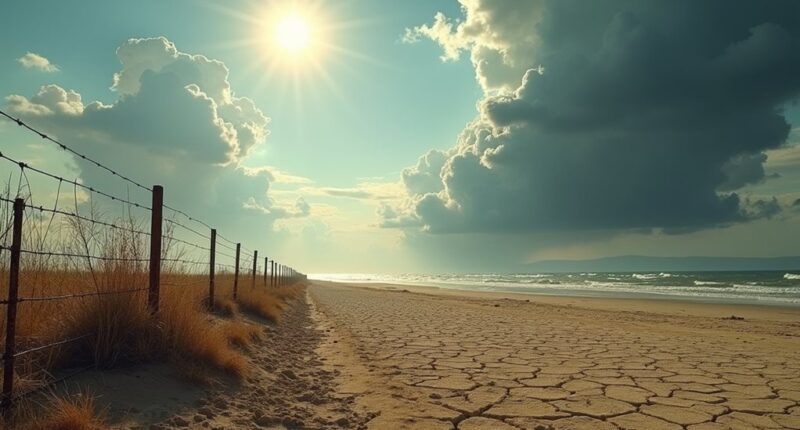Unchecked climate change threatens the global economy with a potential $616 trillion in damages. That’s not just a lot of zeroes on a check—it’s about a staggering loss of livelihoods and resources. As temperatures rise, low-income countries will suffer even more, and infrastructure will crumble under severe weather events. Think of it as nature flipping the bill for our negligence. To dodge this disaster, we must rethink our approach and act swiftly. Curious how we can turn the tide?
The Economic Toll of Unchecked Climate Change
As the planet continues to warm, the consequences of unchecked climate change are looming like a dark cloud on the horizon, threatening to release a storm of economic chaos. Experts predict that without effective climate policies, global GDP could plummet by up to 50% by the late 21st century. Imagine an economy so battered that it resembles a deflated balloon, struggling to float amidst rising temperatures. Each 1°C increase in temperature is tied to an estimated 12% reduction in GDP, making it clear that our planet’s thermostat is more than just a luxury; it’s a lifeline.
Annual global economic damages are projected to reach a staggering $38 trillion by 2050, with costs potentially soaring to $59 trillion. This financial meteor shower isn’t just a distant threat; it’s already raining down on us, primarily due to extreme weather events. Deloitte estimates that unchecked climate change could burden the world with a $178 trillion cost by 2070. In contrast, taking action could yield $43 trillion in economic gains, showcasing a jaw-dropping $220 trillion swing in fortunes. The combination of mitigation and adaptation strategies is essential to prevent these catastrophic economic losses while building resilience against unavoidable impacts.
But it’s not just rich nations that are in hot water. Low-income countries, especially in the tropics, are set to suffer income losses up to 60% higher than their wealthier counterparts. In the U.S., heat and productivity losses alone could cost $160 billion annually by 2090. Unchecked climate change could lead to mass mortality, picture farmers sweating in the fields, their crops wilting under an unforgiving sun, while the global food security system hangs by a thread. Countries in the tropics face the brunt of the impacts of climate change, with their economies already vulnerable and resources stretched thin.
As sea levels rise, infrastructure faces threats that could cost billions annually. North America has already racked up $415 billion in damage from hurricanes, wildfires, and floods over just three years. Climate-related damages could trigger economic shocks that ripple through the property market, leaving it gasping for breath.
Unchecked climate change is a looming economic catastrophe, and the time for action is now.









